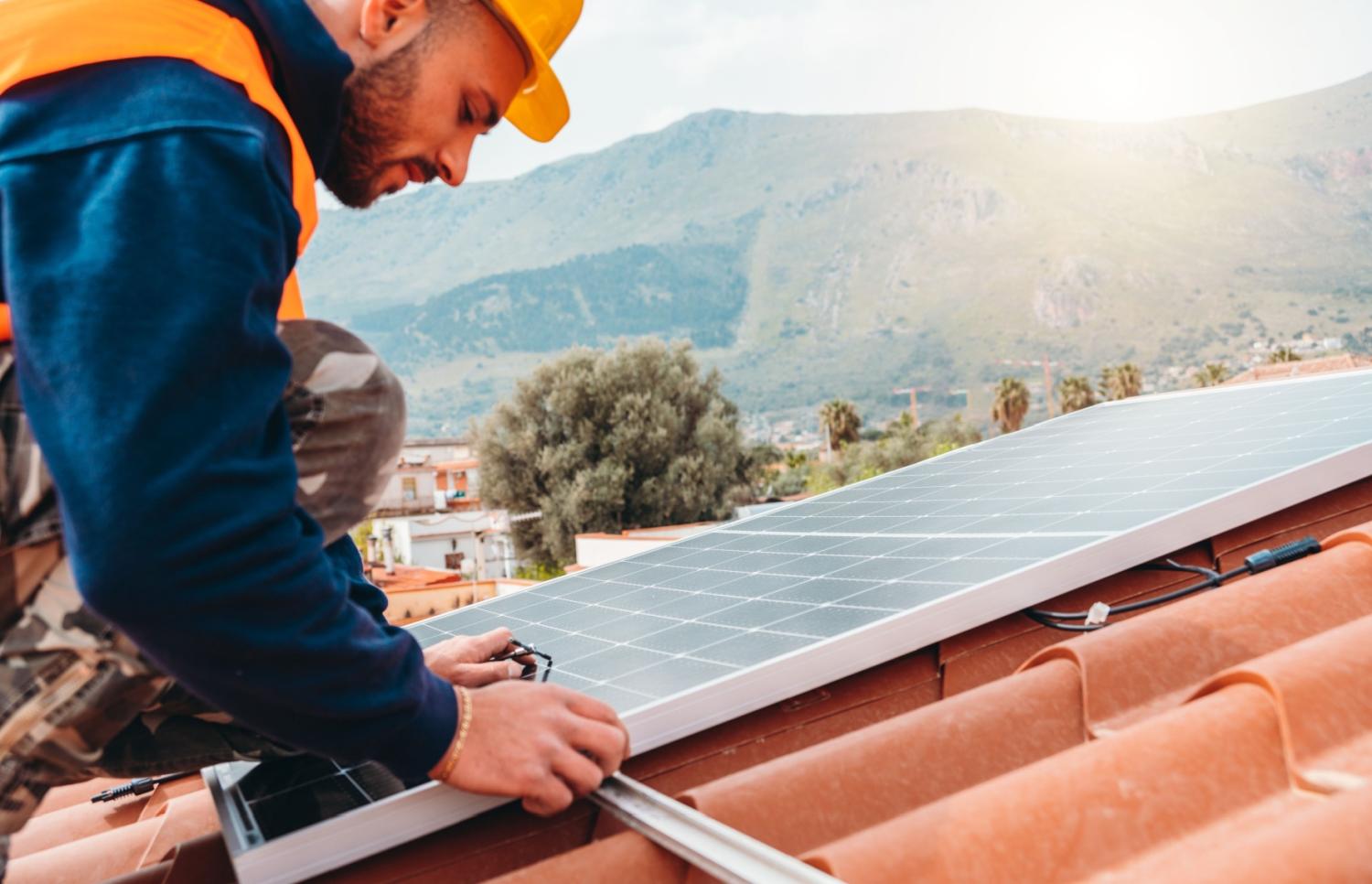This paper is part of the Fall 2024 edition of the Brookings Papers on Economic Activity (BPEA), the leading conference series and journal in economics for timely, cutting-edge research about real-world policy issues. Its conference draft was presented at the Fall 2024 BPEA Conference on September 26-27, 2024. (Drafts, presentation recordings, and slides are available via the link.) Submit a proposal to present at a future BPEA conference here.
Final version posted: July 2025
Download final paper with comments, conference discussion summary, and appendix
Download replication package for final paper
Download data appendix for Mehrotra comment
Transitioning to an electrical grid powered by the sun and the wind instead of oil, natural gas, and coal will produce substantial economic benefits, especially in rural and manufacturing areas, suggests a paper discussed at the Brookings Papers on Economic Activity (BPEA) conference on September 26.
The trend away from generating electricity with carbon-dioxide-producing fossil fuels “has been widely celebrated for the climate benefits it brings,” write the authors, Costas Arkolakis of Yale University and Conor Walsh of Columbia University. “However, both the academic literature and popular analysis have placed somewhat less emphasis on the economic impacts of the transition to a clean grid.”
In their paper—”The Economic Impacts of Clean Energy”—the authors estimate the transition to clean renewable power will reduce U.S. wholesale electricity prices by 20% to 80% in the medium term (by 2040), depending on the region. As a result, wages increase 2% to 3% nationwide, also with large regional variations, they find.
“When electricity gets cheaper, firms get more profitable. When firms get more profitable, they tend to do more hiring and that puts upward pressure on labor markets and wages,” Walsh said in an interview with The Brookings Institution.
The authors note that, unlike fossil fuels, the cost of renewable power doesn’t increase once the infrastructure for generating, storing, and transmitting it is in place.
“It’s a free lunch. We save the environment and we get cheap power,” Walsh said.
In their model, the authors assume what they believe are reasonable projections for continued declines in the upfront capital cost of infrastructure to generate, store, and transmit solar and wind power. But they concede that “reasonable people can disagree” with their assumptions.
The projected drop in wholesale energy prices varies so widely because land costs and the availability of sun and wind vary, the paper notes. For instance, a solar panel in Arizona is about twice as productive as a solar panel in cloudier Maine and a wind turbine in South Dakota will produce five times the power of a turbine in less-windy Florida, the paper notes.
These regional differences suggest the federal government should support the buildout of transmission capacity across state lines, Walsh said. “If you get more transmission capacity, you can distribute energy and lower prices everywhere.”
The effect of lower electricity prices on wages also varies by region because areas dependent on manufacturing and agriculture consume more energy than cities where white-collar service jobs predominate.
In addition to analyzing the medium-term economic impact of an electrical grid dominated by clean and renewable energy, the authors consider the long-term implications. Ever since oil prices shot up in the 1970s, considerable economic resources have been devoted to improving energy efficiency. Abundant clean and renewable energy means those resources could be redeployed, they write.
“The economy’s innovative resources then redirect away from energy-specific technical change to more general progress, raising the aggregate [economic] growth rate,” they write.
Citations
Arkolakis, Costas, and Conor Walsh. 2024. “The Economic Impacts of Clean Energy.” Brookings Papers on Economic Activity, Fall: 161–212.
Ito, Koichiro. 2024. “Comment on ‘The Economic Impacts of Clean Energy’.” Brookings Papers on Economic Activity, Fall: 213–217.
Mehrotra, Neil R. 2024. “Comment on ‘The Economic Impacts of Clean Energy’.” Brookings Papers on Economic Activity, Fall: 217–236.
-
Acknowledgements and disclosures
The authors received support from the National Science Foundation for this paper under grant SES-2117288. Other than the aforementioned, the authors did not receive financial support from any firm or person for this paper or from any firm or person with a financial or political interest in this paper. The authors are not currently an officer, director, or board member of any organization with a financial or political interest in this paper.
David Skidmore authored the summary language for this paper. Chris Miller assisted with data visualization.
The Brookings Institution is committed to quality, independence, and impact.
We are supported by a diverse array of funders. In line with our values and policies, each Brookings publication represents the sole views of its author(s).






